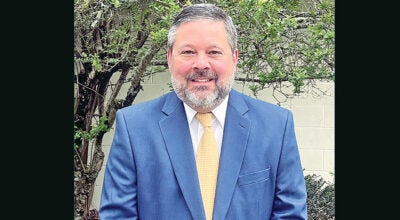Disappearing Revenue
Published 10:43 am Tuesday, May 19, 2009
They know they need to make cuts, the Lawrence County Commission Monday discussed where and how to make those cuts to erase a projected $896,856 shortfall this year.
“We were hired by the taxpayers to make tough decisions and we will not go broke on my watch, I’ll tell you that,” Commissioner Les Boggs said. “I don’t care what we have to do.”
The commissioner met first as a board and then with other officeholders and department heads to discuss the county’s plight any possible short-term solutions.
According to information from the Lawrence County Auditor’s Office, 32 line items in the county’s general fund budget are anticipated to run out of money by the end of the year.
On the upper end of the list is the prosecutor’s office’s salaries account, which is projected to end the year with a $158,630 shortfall, meaning that office will run out of payroll money by Sept.4. The sheriff’s office corrections account is next highest on the list. The payroll for jail staff is slated to end the year with a $126,599 shortfall. That line item will dry up Sept 18. The sheriff’s office road patrol account is slated to run out of money Oct. 30 and end the year $101,600 short.
Sheriff Jeff Lawless said he hopes use $35,000 in his administrative line item, which will end the year more than $50,000 in the black, and move it to help plug the hole in the corrections account. But he said he will need some help from the commission to cover the rest of his corrections deficit. He said laying off guards to balance the budget would mean more prisoners would to be transferred to Scioto County or other county jails and in the end would probably cost more than keeping them here and keeping the guards on the payroll.
As for the hole in his road patrol budget, Lawless said he will get money from the school districts to help with the salary for his school resource officer and that should help. He will also get some money from Lawrence Job and Family Services to pay the salary for one deputy is for now assigned as a child abuse and child sex abuse investigator. JFS has helped pay that deputy’s salary because he worked with both agencies. But state budget cuts in Children’s Services has forced JFS to discontinue paying its portion of the deputy’s salary after July 1. Lawless said he also expects to be able to use some grant money to dab the projected red ink in his road patrol account.
Lawless said on top of projected deficits in his salaries line items, he must also find some way to meet an arbitrator’s award giving some of his employees money owed them when they were incorrectly charged for their health insurance.
“Can we pay back the $150,000 in, say comp time?” Commissioner Doug Malone wanted to know. Lawless said he was not sure but would check— and he also wants to know the precise amount the workers are owed. He has heard the figure is either $150,000 or $90,000.
“I can assure you I am doing the best I can with what I have,” Lawless said. “I’m not spending money irrationally. I’m not asking for fancy equipment or big trips. We’re working with the bare bones minimum and I’m trying to provide the best service with what we have to work with.”
The payroll line item for juvenile court is projected to end the year with a $120,000 shortfall and run out of money by Aug. 21. Also on the list, Common Pleas Court salaries and public employees retirement (PERS), clerk of courts salaries and PERS, group home salaries and PERS, the board of elections salaries and PERS, courthouses security and PERS, veteran’s employees and PERS, treasurer’s employees and PERS and probate court salaries and PERS. Also on the list of line items scheduled to run short of funds: money for indigent defense.
Commissioner Jason Stephens said he is less worried about common pleas court and the group home; both offices have funds from outside sources than can and usually are used to plug holes in their line items. The sheriff’s office, board of elections and some of the other offices do not have this luxury and the commission is not in the best position to help them. The county is looking at $1 million less in revenue this year than last year. County officials project the county will lose $200,000 total this year in Local Government Fund monies — the county has lost $89,000 to date. This comes at a time when revenues from state sales taxes are shrinking as consumers worry more and spend less and the county is seeing bigger bills for criminal justice, health insurance and other necessities.
Among the suggestions discussed: cut the courthouse workweek to four days two weeks a month. Boggs said such a move would save roughly $458,000 a year, although the sheriff’s office would be spared because it must operate 24/7 as well as the Lawrence County Job and Family Services, which is not operated by the county general fund.
Boggs said he was told that right now, the law allows for the four-day workweek only if 100 percent of the county’s employees agree to take the associated pay cut. However, there is legislation pending in Columbus that would allow for such a change even without 100 percent agreement and would some county offices to adopt the plan even if other offices don’t. Another take on that suggestion would be to close the courthouse a half- day on Fridays.
Lawrence County Common Pleas Presiding Judge Charles Cooper said a four or four-and-a-half-day workweek is problematic for him because he is legally obligated to operate the courts for not less than 240 days out of the year and that is generally perceived as a full work day. Subtracting weekends and holidays, that leaves little wiggle room. Also, he said the volume of cases handled by the courts and the seriousness of such cases often require five full days of work— and then some.
“There is the danger factor,” Cooper said. “The three worst crimes we’ve had have been domestic relations. Yes, we have drug crimes but the scary cases have been domestic relations. They need court orders and Mondays and Fridays are when we are the most busy. But there are ways we can and will continue to help.”
Boggs said he intends to contact the Commission Employee Benefit Consortium (CEBCO) and discuss joining that health insurance consortium. Health insurance is one of the biggest hits to the general fund, Boggs pointed out. The county right now pays $4.1 million for employee health insurance. But CEBCO comes with a couple of caveats: CEBCO expects a three-year commitment and there are no guarantees on rate hikes, although information from CEBCO stated that the average increase is 2.7 percent. The counties in CEBCO include Allen, Athens, Butler, Carroll, Darke, Geauga, Logan, Morrow and Washington counties.
Stephens said the county could possibly save $248,000 within six months by paying only for the employee’s health insurance and requiring employees who want coverage for a spouse or child to pay it on their own.
Another idea that got discussion was to encourage South East Ohio Emergency Medical Services (SEOEMS) to increase the amount it charges patients when they answer a call. This would shift more of the burden of paying for ambulance service to those who use it, thus easing the burden on the county general fund. Right now patients are charged $350 per “run” which is considered low— Stephens pointed out that in Washington County the run rate is more like $750.
“The question is, can we raise rates in Lawrence County and not the other two (in the SEOEMS district)? Stephens asked. “The other two have EMS levies.”
Right now the county allots $1.285 million to SEOEMS.
“You’ve got to be careful when you get into self-insurance but it’s something to look at,” Malone said.
Some officeholders came with suggestions but Boggs was hoping they would come with cash, too. He said he hoped that some officeholders who have money stashed in special accounts would be willing to forward that the general fund.
Lawrence Soil and Water Conservation District Manager Peggy Reynolds said it was her understanding employees at the Ohio Department of Transportation and Environmental Protection Agency have been asked to work 10 days without pay this year and some had accommodated by agreeing to give up holiday pay on 10 holidays.
“Can you mandate this?” Reynolds said.
If officeholders had ideas for saving money, others do as well and are willing to give commissioners the benefit of their opinion. One area resident sent the commission a letter with nine suggestions on ways to save money.





